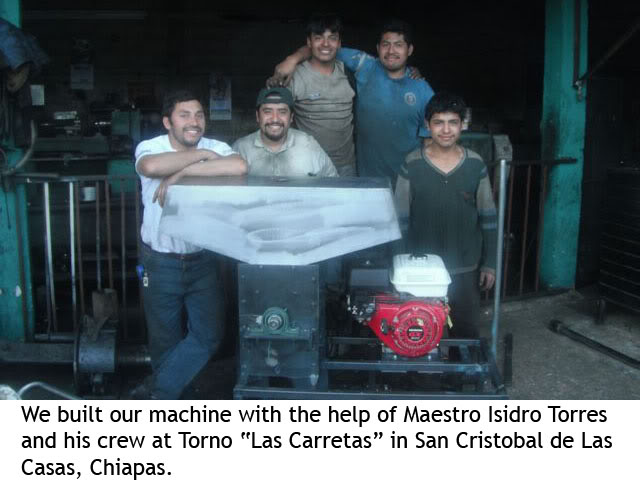MARISOL- Meso American Reef Initiative Save Ocean Life
From civicintelligence
Contents
- 1 Case Study On MARISOL-Meso American Reef Initiative Save Ocean Life
- 2 Introduction- The Environmental Problem of Ocean Trash
- 3 The Founding of MARISOL
- 4 The Machine
- 5 Orientation
- 6 Organization
- 7 Engagement
- 8 Intelligence
- 9 Products and Projects
- 10 Resources
- 11 SeeMe
- 12 Pattern Cards
- 13 Conclusion
Case Study On MARISOL-Meso American Reef Initiative Save Ocean Life
- Rough Draft
Introduction- The Environmental Problem of Ocean Trash
- Ocean trash is a global issue of our time, causing a cascade of problems for the delicate eco-systems within it, ocean pollution is growing exponentially as we increasingly use the oceans for commercial travel and industrial shipping. According to a 2009 report by the Regional Seas Program of the United Nations Environment Program (UNEP) "Marine litter from both land and sea based activities has accumulated to such an extent that in central Pacific areas the mass of floating plastic is six times greater than that of plankton. Mass concentrations of marine litter consisting of plastics, ropes, fishing nets and cargo associated wasters (including whole shipping containers) extending over many kilometers have been observed in high 'sink' areas in the equatorial convergence zone. It is estimated that over 46,000 pieces of litter are on the surface of every square mile of ocean today. 70% of marine litter will eventually sink to the seafloor." (Ecosystems and biodiversity in deep waters and high seas 2009) While this study also describes other ocean pollution such as noise, chemical, oil and nuclear, the largest direct threat to marine life is from plastics. Plastic waste accounts for the majority of ocean garbage, and constitutes approximately 90% of all trash floating on the ocean surface (UNEP 2009) Unlike other types of trash, plastic does not biodegrade, rather its process is photo-degradation through sunlight, resulting in it breaking down into smaller and smaller pieces, that never disappear . Plastic pieces are then eaten by marine life, get stuck on reefs, clog ocean floors, and wash up onto the worlds beaches. Ocean trash poses a significant threat to the health of sea creatures of all sizes, "Over 100,000 marine mammals and one million sea birds die each year from ingesting or becoming entangled in plastic." (NOAA 2009) Yearly approximately 10% of the worlds' land garbage ends up in the ocean (UNEP 2009) and with a population approaching 7 billion people this threatens the future health of the world's oceans, unless solutions presented and global actions are enacted. While many of the environmental issues that we face today are hard for the average person to fully grasp, trash is a problem that everyone can see, from gum stuck on our city sidewalks to garbage washing up on our shores; it is therefore a tangible reality. despite the physical actuality of a global problem with trash creation and disposal, there is still a diffusion of responsibility as to who is going to clean it up. Often society looks to government agencies to clean the streets and provide garbage services, but who is responsible for the trash in the oceans that wash up on the shore? To this end can a framework of civic intelligence help to negate that diffusion and enable every citizen to take ownership of, not only what they are disposing, but a greater interaction with the entire cycle of trash?
The Founding of MARISOL
The Machine
Orientation
Organization
Engagement
Intelligence
Products and Projects
Resources
SeeMe
Pattern Cards
- Engaged Tourism (107)
- Thinking Communities (118)
- Durable Assets (58)
Conclusion
- Solutions are only going to be discovered, and enacted, when entire communities take ownership for this problem. Often the most serious trash pollution falls into the poorest communities, who are struggling to meet the needs of the immediate survival and have no desire, energy, or finances to tackle the problem. MARISOL is an example of how the actions of one individual can spark the unity within a community to empower active solutions, it demonstrates an inspiring start. However, to truly embody civic intelligence it needs a global framework so their organization does not simply float individually making small steps but not combating the root of the problem. It is imperative that a network of similar foundations unite to work cohesively to combat the reality of ocean garbage and to create long-term solutions to ceasing the problem altogether. The creation of a “world brain” with formats available for similar small communities to develop their own program is essential to greater, global solutions. The reduction of packaging and the greater need to discover creative solutions to recycling is going to happen with local communities working with manufacturers, a great example of this interaction is a campaign by the Women’s Institute in England. In 2006, the Women’s Institute started the ‘Packaging Campaign’ designed to bring attention to manufacturers and consumers to the waste create by needless packaging. The campaign asked for WI members to leave packaging at the supermarket check out on one day in 2006. The results of this campaign was the biggest supermarket in England, Tesco, started asking customers to do the same so they could discern which packaging people considered unneeded. If organizations like MARISOL connected with campaigns like the WI, they would create a program of change right through the chain of trash.

